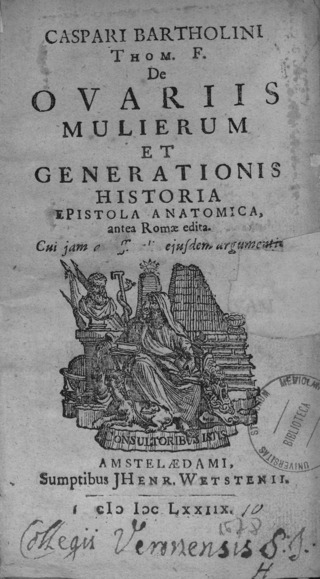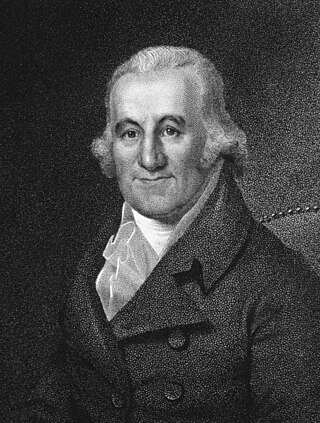
Caspar is a masculine given name. It may refer to:

Caspar is a masculine given name. It may refer to:

Caspar Bartholin the Younger, was a Danish anatomist who first described the "Bartholin's gland" in the 17th century. The discovery of the Bartholin's gland is sometimes mistakenly credited to his grandfather.
The year 1629 in science and technology involved some significant events.
Antonius is a masculine given name, as well as a surname. Antonius is a Danish, Dutch, Finnish, Latin, Norwegian, and Swedish name used in Greenland, Denmark, Norway, Sweden, Finland, part of the Republic of Karelia, Estonia, Belgium, Netherlands, Suriname, South Africa, Namibia, and Indonesia, while Antoníus is an Icelandic name used in Iceland. It is also the source of the English personal name Anthony, as well as a number of similar names in various European languages.

Caspar Bartholin the Elder was a Danish physician, scientist and theologian.
Caspar Wistar was a German-born glassmaker and landowner in Pennsylvania.

Caspar Wistar was an American physician and anatomist. He is sometimes referred to as Caspar Wistar the Younger, to distinguish him from his grandfather of the same name. The plant genus Wisteria is named for him.

Caspar Creuziger, also known as Caspar Cruciger the Elder, was a German Renaissance humanist and Protestant reformer. He was professor of Theology at the University of Wittenberg, preacher at the Castle Church, secretary to and worked with Martin Luther to revise Luther's German Bible translation.
Caspar Cruciger the Younger was a German theologian and Protestant reformer.
Franciscus is a Latin given name, originally an epithet meaning "the Frank, the Frenchman". It was applied to Saint Francis of Assisi (1181/82–1226). Francis had been baptized Giovanni (John); his father was Italian and his mother Provençale ; his father was on business in France when he was born, and when he returned to Assisi, he began to call his son by the nickname Francesco, in the opinion of G. K. Chesterton possibly because out of a general enthusiasm for all things French, or because of his commercial success in France. After the canonization of Saint Francis of Assisi in 1228, the custom of naming children after saints led to the popularization of Franciscus as a given name. In the vernaculars of western Europe, the name diversified into the forms Francesco (Italian), Francisco, Francesc (Catalan), François, Franz ; besides Frans, the Latin form remains commonly given in Dutch.
Cruciger is a surname. Notable people with the surname include:
Bartholin is a Danish family name.
Georg Cruciger (1575–1637) was a German Calvinist theologian and linguist.
Events from the 1580s in Denmark.
Events from the year 1655 in Denmark.
Henricus is a given name. People with the name include:
Kaspar is a given name and surname which may refer to:
Ludovicus or Ludowicus is a Latinized form of the Germanic masculine given name Hludwig ("Louis"). It has been used as a baptismal name in the Low Countries, especially in Belgium; bearers often use(d) Lodewijk or short forms like Lode, Lou, Louis, or Ludo in daily life. People with the name include:
Nikolaus is a given name. Notable people with this name include the following: